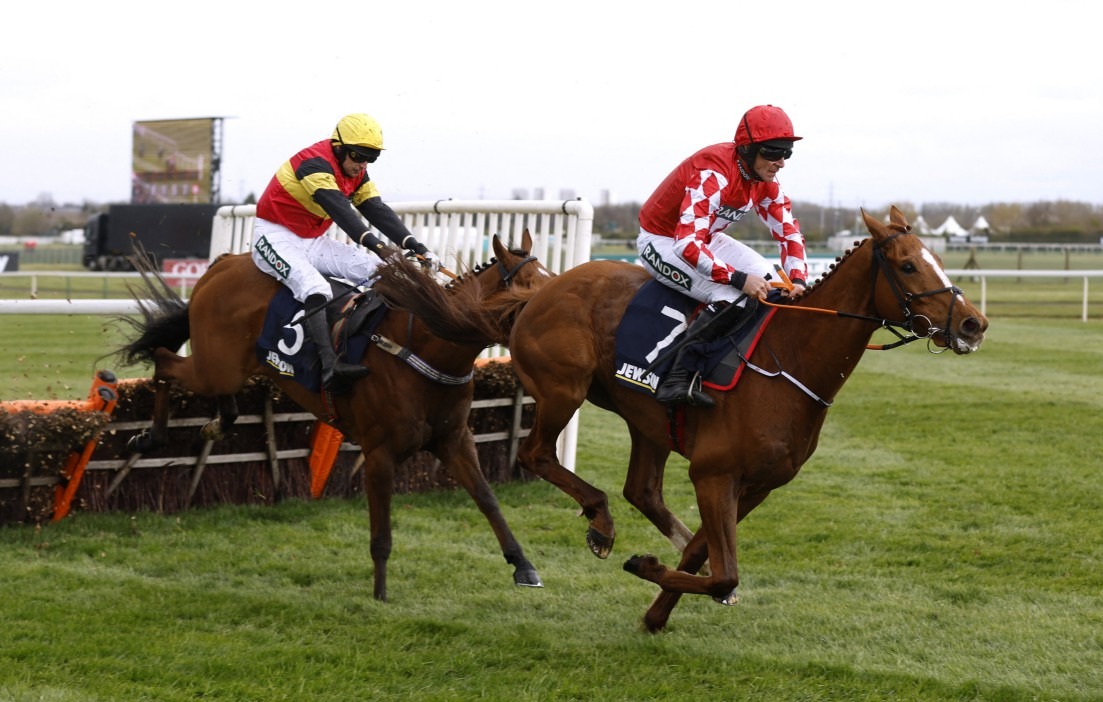Aintree Festival Day One Overview
The Aintree Festival is in full swing, with the Juvenile Hurdle taking center stage on Day One. Sun Racing has the complete rundown of how each horse performed at Aintree.
Who Won the Juvenile Hurdle?
The Juvenile Hurdle is the second race of the day at Aintree, and the winner will be unveiled shortly. Stay tuned for the full results and horse placings.
Aintree Festival Schedule
Here's a sneak peek at the Aintree schedule for each day of the festival:
Thursday, April 11: Manifesto Novices’ Steeple Chase, Boodles Anniversary 4-y-o Juvenile Hurdle, Aintree Bowl, Aintree Hurdle, Randox Foxhunters’ Open Hunters’ Chase, Close Brothers Red Rum Handicap Chase, Goffs UK Nickel Coin Mares’ Standard Open NH Flat
Friday, April 12: Huyton Asphalt Franny Blennerhassett Memorial Mildmay Novices’ Chase, William Hill Handicap Hurdle, TrustATrader Top Novices’ Hurdle, My Pension Expert Melling Chase, Randox Supports Race Against Dementia Topham Chase, Cavani Sartorial Menswear Sefton Novices’ Hurdle, Lydiate Handicap Hurdle
Saturday, April 13: Bridle Road Handicap Hurdle, Turners Mersey Novices’ Hurdle, William Hill Handicap Chase, JRL Group Liverpool Hurdle, Randox Grand National Chase, Maghull Novices’ Chase, Weatherbys nhstallions.co.uk Standard Open National Hunt Flat Race
How to Watch the Races
Don't miss any of the action at Aintree! The festival runs from April 11 to April 13, featuring seven races each day. Tune in to ITV1 for live coverage of five races daily, with additional live streaming on ITVX. Racing TV and bookies’ websites will also provide race coverage. Remember to enjoy the races responsibly and seek help if needed.
For more information on responsible gambling, visit www.gamstop.co.uk or contact the National Gambling Helpline at 0808 8020 133.
Frequently Asked Questions
Do different breeds of horses require different training methods?
Different horse breeds have different characteristics, and the racing distances can also vary. Thoroughbreds and Quarter Horses undergo different types of training. Thoroughbreds excel at long-distance flat races, while Quarter Horses excel in sprinting. Each breed is unique and requires a different approach to match their physical characteristics and behaviors.
What’s the first step when training a racehorse?
During the first phase of racing a horse, there is a critical “breaking” stage where the horses become accustomed with a saddle, bridle or the weight from a rider. During the early sessions, it is important to use patience and gentle handling to help the horse become comfortable with the human interaction and equipment that will be worn throughout its racing career.
How do I train a racing horse?
It is important to condition a horse gradually. This includes long distance training to build stamina along with shorter workouts that increase speed. The cardiovascular system, muscle structure, and bone structure of the horse must be developed over time with a specially designed exercise regime that mimics race conditions without injury or stress.
How do you maintain your racehorse’s mental health?
Mental health is just as vital to a horse’s performance as physical conditioning. Varied routines, regular turnout to pasture, mental stimulation, and gentle, patient handling all contribute to a racehorse’s psychological well-being. By ensuring the horse is socialized with other horses in a stable, calm environment, you can prevent stress and behavioral problems.
When can a horse be expected to start racing training?
Although horses can begin basic training at a young age, they usually start more intensive race training and conditioning around the age of two. Their bodies are still young, and can adapt to the learning process. However, timing will vary depending upon the horse’s individual temperament and developmental stage.
What diet is the most suitable for a horse that races?
It is important that the diet of a racing horse be of high quality, and well-balanced to meet its energetic needs during training and competition. It is a combination of hay of the highest quality, grains, such as barley or oats, and commercially-prepared feed for racehorses. The diet should also be supplemented by essential vitamins and mineral to promote overall health and performance.
Statistics
- The majority of racehorses in training are subject to an exercise regimen that includes being ridden six days a week.
- The Injury Database from The Jockey Club reports that synthetic racing surfaces have a lower horse fatality rate than dirt tracks, with a statistically significant difference of 1.2 fatalities per thousand starts on synthetics compared to 2.0 on dirt tracks.
- Around 80% of thoroughbred racehorses begin their racing careers by the age of two, according to industry estimates.
- The average cost to train a thoroughbred racehorse for one year can exceed $50,000, accounting for expenses related to training, boarding, and veterinary care.
- Statistically, less than 1% of thoroughbred foals born each year will go on to win a stakes race.
- The average racehorse reaches its peak physical ability between the ages of four to five, with some variation based on the breed and individual development.
External Links
jockeyclub.com
grayson-jockeyclub.org
horseracing.com
equibase.com
thoroughbredracing.com
paulickreport.com
How To
What to do about common racehorse behavioral problems
Before addressing behavioral concerns, make sure they aren’t due to discomfort. Once all health issues have been ruled out you can use consistent, positive training methods to change behavior. Use exercises that reinforce obedience, respect and discipline. When dealing with more challenging behaviors, desensitization is used to reduce the horse’s overreactions. Instill confidence and trust into the horse by remaining calm and assertive.

